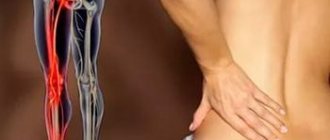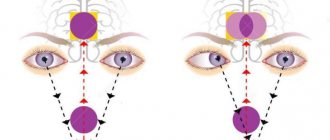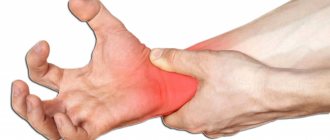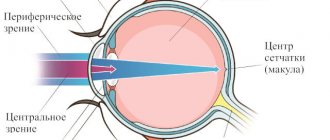Dental treatment
If the dentist does not treat the tooth correctly or completely, it can cause swelling in the cheek.
Causes:
- Allergic reaction.
It appears in the patient as a result of intolerance to the components of the filling. To eliminate swelling, you should visit a doctor and replace the installed filling with a hypoallergenic one.
- Removal of a tooth.
If the cheek is swollen after surgery, then the patient probably ignored the doctor’s recommendations and ate solid or hot foods.
- Nerve removal.
Swelling occurs if part of the nerve is not removed. It is important to see a dentist immediately so as not to lose a healthy tooth.
- Gum section.
Usually required to remove accumulated pus. If the swelling does not subside while taking anti-inflammatory drugs, this may be a serious symptom that requires the attention of a specialist.
Complications of flux
Complications with these localizations of phlegmon can be much more severe than with superficially located purulent foci with clear local manifestations. It is especially important to emphasize the danger of developing phlegmon of the floor of the mouth, taking into account the probable anaerobic component of the microflora.
Therefore, if there are complaints about difficulty swallowing, an increase in the volume of the tongue, its pushing towards the hard palate, a forced position of the head, you should urgently seek help from a dentist in order to avoid the development of the most common complication with this localization of phlegmon - anterior mediastinitis.
What to do if your cheek is swollen
To reduce swelling, you can use one of the following tips:
- Rinse your mouth with a solution of salt and soda.
This remedy has an antiseptic effect and helps destroy pathogens. You can enhance the effect by adding a couple of drops of iodine to the solution.
- Use chamomile infusion to rinse
, sage or other medicinal herbs that have anti-inflammatory properties.
- Apply a cold compress to the swollen cheek
if the swelling is caused by a bite or mechanical injury. This method is contraindicated in patients who have an elevated body temperature or a tumor that develops due to inflammatory processes. Warming compresses are not recommended.
- Lotions with aloe or Kalanchoe juice.
A cotton wool soaked in the juice of the plant is applied to the inside of the affected cheek.
If the described methods do not eliminate the problem, you should seek help from a doctor. The day before, you should not take painkillers and anti-inflammatory drugs, so as not to complicate the diagnosis.
What to do if your tooth hurts and your cheek is swollen?
Everything was fine in the evening, but in the morning the gums near the tooth were swollen, what to do in such a situation and why did the swelling appear? The reasons can be very different, from pericoronitis (inflammation at the apex of the tooth root), which did not manifest itself until a certain time, to difficult eruption of wisdom teeth.
What to do if your cheek is swollen from a tooth?
If painful swelling of the gums and cheeks appears, you should urgently make an appointment with a dentist. Only a doctor can accurately determine the cause of this condition and effectively eliminate it. The causes of swelling may be:
- Pericoronitis (tooth cyst) and its complication – gumboil, or periostitis.
- Difficulty in teeth eruption, most often observed with wisdom teeth (they are also third molars or “eights”).
- Injury to the tooth itself or the gums around it - for example, from too hard food or from an impact.
Whatever the reason, only an experienced dentist with accurate diagnostic equipment can identify it. Under no circumstances should you try to treat your teeth on your own, so as not to provoke serious complications and deterioration of your condition.
What to do if your wisdom tooth is cutting out and your gums are swollen?
The eruption of wisdom teeth in most people occurs with complications, this is due to the late appearance of “eights”, when the entire dentition is already essentially formed, and to the lack of space on the jaw. The jaw of a modern person has shrunk by about 10-12 mm over the past hundreds of years, so the third molar now does not always have enough space for normal eruption. That is why it cuts with difficulty, moves the remaining teeth and puts pressure on them, and often “goes” to the side, injuring the gums and mucous membrane of the cheek.
Therefore, there are often cases when a wisdom tooth comes out and the gums become swollen . Let's figure out what to do in such a situation? First of all, do a thorough cleaning with a brush and paste, if possible removing food debris not only from the interdental spaces, but also from the so-called “gum hood” (a flap of gum that covers the cutting molar). You can also rinse your mouth several times with antiseptic solutions (chlorhexidine, sodium-salt solution) or decoctions of herbs that have antiseptic properties (sage, chamomile flowers).
And, of course, you need to immediately contact your dentist. Most likely, the “gum hood” will need to be excised to make it easier for the tooth to erupt. If the situation is complex, the “eight” is cut crookedly or threatens the health of the entire dentition or neighboring units, it may require its removal.
Before visiting a doctor, it is advisable not to take painkillers so as not to complicate the diagnosis.
If you have a problem similar to that described in this article, be sure to contact our specialists. Don't diagnose yourself!
Why you should call us now:
- We will answer all your questions in 3 minutes
- Free consultation
- The average work experience of doctors is 12 years
- Convenient location of clinics
Single contact phone number: +7
Make an appointment
What not to do if your tooth hurts and your gums or cheek are swollen.
When the gum above a tooth is swollen, the first thing to do is brush your teeth and go to see a doctor. Here is a list of what not to do if your cheek is swollen from a tooth:
- Warm the sore spot. Warm compresses and poultices can only accelerate and aggravate the inflammatory process.
- Trying to “treat” the disease with folk remedies. Many of them simply do not have any effect, but there is also downright dangerous advice. Therefore, it is better not to self-medicate and consult a doctor.
- Rinse your mouth with alcohol or alcohol-containing products. A chemical burn to the mucous membrane is exactly what you are missing in addition to a sore gum.
The only thing that a person whose gums and cheeks are swollen, teeth hurt, or whose third molar is difficult to cut needs is qualified dental care.
Causes
Swelling of the cheek can occur for various reasons, the main ones:
- mechanical injury or bruise;
- development of dental diseases;
- a bite of an insect;
- if the swelling is accompanied by pain in the ear, then we can talk about an inflammatory process in the ear canal;
- redness of the cheek may be a symptom of an allergic reaction;
- If it becomes difficult for a child to breathe, you need to immediately call an ambulance; it could be Quincke's edema.
Since we are talking about a baby, there is no need to guess and find out the cause; you need to see a doctor or call an ambulance as quickly as possible.
A swollen cheek can be a symptom of various dental diseases:
- Deep caries. Symptoms: pain, swelling of not only the cheeks, but also the gums.
- Pulpitis. Symptoms: severe aching pain, bad breath.
- Periodontitis. The main symptom, in addition to swelling of the cheek, is pain while eating.
- Periostitis (flux). Symptoms: pain, swelling of the gums, high body temperature.
Pain and swelling of the cheek can also develop as a result of the following reasons:
- Removal of a tooth. After the procedure, swelling may persist for the first couple of days.
- Orthodontic treatment. Installed braces may cause slight swelling of the cheek.
- Treatment of pulpitis. Improper canal filling can lead to pain after treatment and an enlarged cheek.
- Teething. The appearance of teeth may be accompanied by slight swelling not only of the gums, but also of the cheeks.
An enlarged cheek does not always indicate problems with teeth or gums; there are other factors and diseases that can cause a similar condition:
- Sinusitis is an inflammatory process of the nasal mucosa. In this case, nasal congestion and difficulty breathing are observed.
- Lymphadenitis is inflammation of the lymph nodes. Manifested by enlarged lymph nodes.
- A cyst is the formation of a small lump in the oral cavity.
- Impaired kidney function can be accompanied by swelling of various parts of the body, including the cheeks.
- Facial neuritis. Swelling occurs due to pressure on the nerve.
All of these diseases require immediate help and treatment.
If the cause is injury or bruise, swelling should be accompanied by a hematoma. In this case, the damage most likely occurred due to biting the mucous membrane or due to careless handling of the brush while brushing the teeth.
If a hematoma is not observed, the injury may be the result of an incorrect bite or poorly installed fillings that injure the oral mucosa.
A severe burn due to eating too hot food can also cause cheek enlargement.
What is the danger of losing chewing teeth?
If there is an end defect on at least one side (not to mention two at once), it will immediately become noticeable. When a person chews food on only one side for a long time, the load on it instantly increases, and the temporomandibular joint is overloaded. Ultimately this leads to:
- problems with chewing food;
- problems with the digestive tract arising from the previous paragraph;
- displacement of teeth in the oral cavity and their falling out of their sockets - there are no “antagonist” teeth that would distribute the load;
- reduction in bone tissue volume;
- facial asymmetry (sunken cheeks, deep nasolabial folds, malocclusion);
- frequent headaches;
- rapid wear of teeth adjacent to the chewing teeth, or chewing teeth on the opposite side.
Causes of loss of back teeth
The most common cases of loss of chewing teeth are neglected and untreated dental diseases: caries
, which developed into
pulpitis
or periodontitis, due to which the tooth had to be removed.
In addition, teeth (any teeth, including chewing ones) can fall out due to gum disease - periodontitis
or
periodontal disease
- in both diseases, the roots of the teeth become loose and do not hold in the inflamed gums.
Hormonal (for example, during pregnancy) or age-related changes also often lead to tooth loss.
Chewing teeth can also fall out due to prolonged wearing of bridges. When installed, such dentures are attached to adjacent teeth (most often to the posterior chewing teeth), and over a long period of wear they become loose. That is why bridge structures in modern dentistry are increasingly giving way to more advanced types of tooth replacement.
In the rarest cases, an end defect occurs in children at birth - when the rudiments of the back teeth were not formed at the stage of formation of the skeletal system. This happens mainly due to hereditary factors. You should also monitor your child’s primary chewing teeth – their premature loss can lead to the loss of the back molars.
One way or another, any lost tooth must be replaced as soon as possible, and the first step in this will be a timely visit to an orthopedic doctor.
On a note!
Currently, in As-Stom dentistry there is
a 15% discount
on all dentures and
a 50% discount
on an implant with installation. Both dentures and implants are excellent options for replacing lost back teeth.











